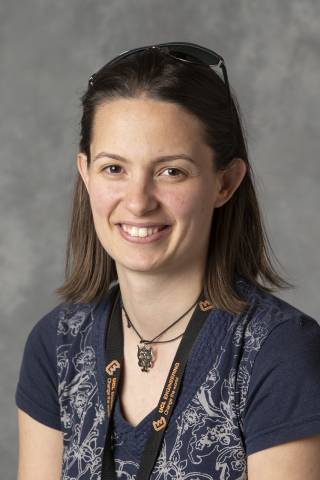
How would you describe your area of study or work?
I am a post doctoral researcher in Disability Innovation and Human Computer Interaction. My main area of research revolves around understanding how people with disabilities use assistive technology and how we can find better ways to engage with people to develop technology that is more useful and acceptable. However, I am also very interested in education and in understanding how we can make science and engineering more accessible to people.
What is your favourite part of your job/area of study/area of research?
In general, I really like interacting with people who take part in my research. I am fascinated by the different ways in which participants use assistive technology and I am amazed by the incredible creativity and problem solving ability of people with disabilities. I am also extremely lucky to be working on a project that aims to improve access to assistive technology for people with disabilities who live in low and middle income countries, which gives me the possibility to explore a completely different context.
What is the most valuable lesson you have learnt during your studies/career so far?
You rarely get things done all by yourself; complex problems require team effort.
Describe your day-to-day life as an engineer/engineering student
A lot of my work at the moment involves planning and supporting different research projects in Kenya with various partners who work on the development of new devices and services for people with disabilities. Some of the tasks that I do are more in the realm of coordination and project management such as defining research protocols, making sure that we obtain ethics approval for research, and that we have strong connections with our partners in Africa so that our projects run smoothly. I also get to do a lot of more practical things like building prototypes, running interviews and experiments with participants both here and in Kenya.
What attracted you to participate in outreach and engagement activities?
Before starting work in the field, I had a lot of stereotypical ideas about who engineers were and what they did. I realised that most of these stereotypes are wrong and engineers are an incredibly diverse group doing a lot of different things. I would like people to understand that engineering is about people more than it is about numbers and it’s more fun and accessible that we think a lot of the time.
What is the best thing about being involved in outreach activities?
Outreach activities give me the chance to play with science and engineering concepts with a bunch of young people who are fun, creative and eager to learn. I think they offer me the chance to step out of my daily routine and rediscover my enthusiasm for science as much as sparking that enthusiasm in someone else.
What type of activities or programmes have you led/run?
I have run several different activities from robotics masterclasses, school talks, and summer schools on wheelchairs and bio-inspired robots.
What outreach activity or programme are you most proud to have been involved with?
I think the programme I am most proud of is the Robotics Masterclass I led for the UCL Robotics Society. It was the first activity I had organised and I was really nervous about it! But it has been a great success and it has been running for a few years now. Every year I end up training a bunch of new volunteers than often go on to become STEM ambassadors themselves.
What advice would you give young people wanting to study or work in STEM-related fields?
Go for it! Even if you think you don’t have the right background. If you are motivated you can always learn new things. STEM offers you a great range of opportunities and it’s a fun and diverse field where you can always find something interesting and have an impact on people’s lives.
 Close
Close

